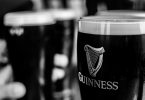Public Health (Alcohol) Bill published
With the goal of reducing average annual alcohol consumption in Ireland from 11 litres to 9.1 litres per person by 2020, in launching the Bill the Minister stated, “Ireland needs to change its damaging attitude to alcohol. There’s a huge difference between having a drink on occasion with friends and indulging in regular binge-drinking.
“This Bill addresses alcohol as a public health issue for the first time by tackling price, availability, marketing, advertising and labelling. By taking this approach and confronting the problem in a wide range of ways, I’m confident that we can make a huge difference to public health. We have talked about these measures for long enough. Now is the time to make it happen.”
The new Bill sets out:
- a minimum unit price of 10c per gram of alcohol in alcohol products to eliminate very cheap alcohol from all stores and shops
- structural separation of alcohol products from other products in outlets, either by containment in a unit or a separate area of the store, so that it’s not sold like a normal groceries product
- Prohibition of price-based promotions and tougher restrictions on targeted promotions such as ‘happy-hour’
- Health warnings and calorie-labelling on alcohol products, with corresponding warning signs and information in pubs and off-licences
- Regulation of advertising, marketing of alcohol and sponsorship, with criminal sanctions applying for the first time
- An enforcement regime with inspections by Authorised HSE officers and penalties for non-compliance, including fixed payment notices.
Minister Varadkar added, “The Bill will be published shortly and we aim to have it in the Oireachtas before the end of the year.”
Public Health (Alcohol) Bill – Specific details
Minimum Unit Pricing for alcohol products
The Bill makes it illegal to sell or advertise for sale alcohol at a price below 10c per gram of alcohol. This is aimed at those who drink in a harmful and hazardous manner and is designed to prevent the sale of alcohol at very cheap prices.
MUP is able to target cheaper alcohol relative to its strength because the minimum price is determined by and is directly proportional to the amount of pure alcohol in the drink. MUP is not expected to affect the price of alcohol in the on-trade. The University of Sheffield study reported that the alcohol products most affected by this policy are those that are currently being sold very cheaply, often below cost prices, in the off-trade, i.e. supermarkets and off-licences.
Health Labelling of Alcohol Products
‘Standard Drink’ or units are widely misunderstood by the general public.
Labels on alcohol products will have to detail:
- The amount of pure alcohol as measured in grams and the calorie count
- Health warnings (including for pregnancy)
- A link to a public health website to be set up by the HSE, giving information on alcohol and related harms.
On- and off-licences will be required to display a notice with health warnings indicating that grams and calorie content for ‘poured drinks’ can be found in a documents available upon request.
Structural Separation
Alcohol products will no longer be displayed like ‘every day’, ‘ordinary’ products. Stores will have to choose to store alcohol either in a separate area of the store or in a closed cabinet. A premises which sells alcohol products will be required to separate the alcohol from ‘ordinary’ or every day products by:
- confining the sale of alcohol to a single area in the premises which is separated, through which alcohol products are not visible and to which customers do not have to pass through to buy ‘ordinary’ products; or
- a closed storage unit(s) which contains only alcohol products.
Alcohol products behind checkout points will need to be concealed. Point of sale advertising of alcohol products will now be confined to the designated display area or the inside of the storage cabinet. These provisions will be monitored and enforced by Environmental Health Officers.
Promotions
The Bill will allow restrictions or bans to be imposed on the sale of alcohol products at a reduced price or free-of-charge, promotions targeted to a particular category of persons and ‘happy hour’ type promotions to toughen up existing provisions. This gives the option of targeting promotions like a ‘students’ night’ or extended promotions for ‘happy days’.
Advertising, marketing and sponsorship
The Bill restricts advertisements so they can only give specific information about the product. This means that advertisements will be less likely to glamorise alcohol or make it appealing to children. Alcohol-related advertisements will be restricted to films with an 18 cert only and these measures will be subject to prosecutions under the criminal justice system for the first time.
Warnings in relation to the harmful effects of alcohol consumption in general and during pregnancy will need to be included in any advertisement. The Bill will prohibit advertising in certain places including in or near:
- a school
- an early years service
- a playground owned or maintained by a local authority
- a train or bus station
- a designated stopping place at which passengers may board or
- alight from buses or light railway vehicles.
The Bill also sets out the criteria for advertising in cinemas and publications and prohibits advertising in sports grounds for events where the majority of competitors or participants are children or directly on a sports area for all events (eg on the actual pitch, the race track, tennis court etc). A restriction on merchandising of children’s clothing is also provided for. The restrictions on alcohol advertising apply to domestic and foreign publications.
These provisions will be reviewed after three years from commencement to gauge their effectiveness.
Broadcasting
The Broadcasting Authority of Ireland Code will include an evening broadcasting watershed for alcohol-related content. The Broadcasting Act 2009 will be amended to ensure that the Minister of Health is consulted on all health-related aspects of the Code and including alcohol in the list of products which are subject of public concern in respect of the general public health interests of children.
Enforcement
The Bill will be enforced by authorised officers appointed by the HSE.
Opinion of the Advocate General, European Court of Justice
The opinion of the Advocate General of the European Court of Justice on MUP for alcohol products was published on 3rd September 2015. This case was initiated by Scottish alcohol producers in response to the Scottish Government’s introduction of MUP. The Advocate General’s opinion indicates that MUP may be compatible with European Law only if it can be shown to be more effective than other alternative measures.








